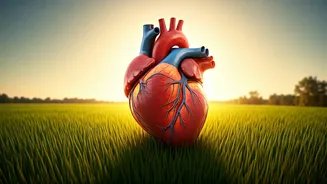The Mind-Heart Bond
The intricate relationship between emotional wellness and the health of our heart is a topic of significant importance. The cardiovascular system is profoundly
influenced by our feelings. When experiencing prolonged stress, the body releases elevated levels of cortisol and adrenaline. These hormones, while vital in the short term for the 'fight or flight' response, can put excessive strain on the heart over time. This strain may lead to increased blood pressure, which in turn elevates the risk of cardiac problems. On the other hand, positive emotions have the opposite effect, fostering a protective mechanism. They contribute to lowering blood pressure and diminishing the presence of stress hormones, therefore creating a more favourable environment for heart health. This knowledge emphasises the significance of proactively nurturing emotional well-being to bolster cardiovascular health and overall wellness.
Stress's Damaging Impact
Chronic stress, a pervasive issue in modern life, significantly jeopardizes heart health. When stress becomes a constant companion, the body's natural response mechanisms are continually activated, leading to a relentless surge of stress hormones. This prolonged hormonal exposure can severely impact the cardiovascular system. Specifically, persistently high levels of cortisol and adrenaline cause the heart to work harder. They can cause blood vessels to constrict, leading to elevated blood pressure. Over time, this constant strain can result in the development of various cardiac ailments, including hypertension, coronary artery disease, and an increased risk of heart attacks. Therefore, managing and mitigating chronic stress is essential to safeguarding heart health. Techniques like mindfulness practices, regular exercise, and seeking professional support can play a crucial role in lowering stress levels and reducing the associated risks.
Positivity's Protective Power
Emotions, particularly positive ones, serve as powerful allies in the pursuit of heart health. Cultivating feelings like joy, contentment, and gratitude can yield significant benefits for the cardiovascular system. These positive emotions have a soothing effect on the body, counteracting the detrimental effects of stress hormones. They help to regulate blood pressure and promote vasodilation, which is the widening of blood vessels. Furthermore, positive emotions are often linked to healthier lifestyle choices, such as improved sleep patterns and enhanced social connections, both of which support overall well-being. By integrating activities that evoke positive feelings into daily routines—such as spending time with loved ones, pursuing hobbies, or practising gratitude—individuals can fortify their heart health and create a more resilient foundation for their overall well-being.




















